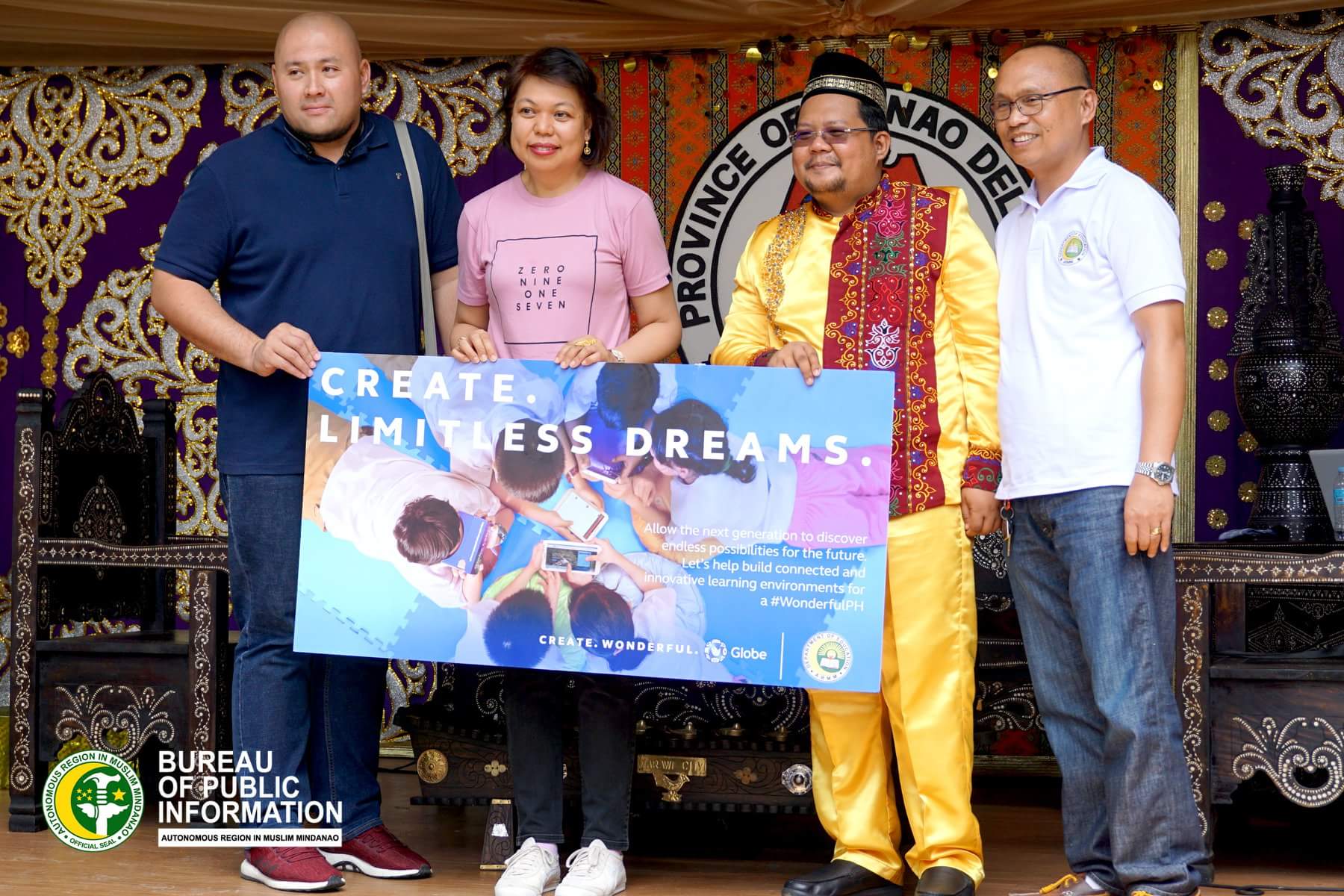Global Filipino Schools program reaches all 17 regions in the PH

(L-R) Globe Channel Management Group Area Sales Head for South Mindanao James Norman Chiong, Globe Senior Vice President for Corporate Communications Yoly Crisanto, DepEd ARMM Regional Secretary Rasol Mitmug, and DepEd ARMM Chief of ICT Aratoc Macarambon during the GFS event in Cotabato City. Photo courtesy of Bureau of Public Information
About 214 schools across all 17 regions in the Philippines, latest of which are those in the Autonomous Region in Muslim Mindanao (ARMM), are being equipped with information and communications technology (ICT) tools and methodologies on 21st-century education through Global Filipino Schools (GFS) program.
The GFS program is part of a long-term partnership between Globe Telecom and the Department of Education (DepEd), meant to forward 21st-century learning principles and ICT integration in public schools nationwide. It aims to transform public high schools into ICT centers of excellence by equipping students and teachers with the knowledge, skills, and tools needed for the 21st century.
Ahead of their 2020 target, Globe and DepEd brought the program to all 17 regions in the Philippines, with ARMM as its final leg.
From Monday, July 23 to Thursday, July 26, program officers from DepEd divisions and teaching representatives from select public elementary and high schools gathered for a four-day teacher training workshop in Cotabato City. Each of the nine school divisions in ARMM was represented in the workshop. A virtual coaching course for all participants will also be held to help them with mastery and application of the learnings.
“Many young Filipinos are unable to make the most of advancement in digital technology when compared with other countries. Through innovative teaching methods and integration of ICT in classrooms, teachers and school leaders can significantly increase the quality of learning in the public sector. This is the main goal of GFS,” said Yoly Crisanto, Chief Sustainability Officer and Senior Vice President for Corporate Communications at Globe.
Through the GFS program, schools received free internet connectivity; as well as ICT tools like tablets, projectors, virtual reality (VR) goggles, casting dongles, pocket wifi devices, and a mobile cart. Most importantly, partner schools also received an intensive teacher training program on 21st-century learning approach, ICT integration in classrooms, as well as content responsible digital citizenship.
Schools in ARMM which are under the program are the following:
-
Maluso National High School (Basilan)
-
Lamitan National High School (Lamitan City)
-
Sultan Guro Memorial National High School (Lanao del Sur 1)
-
Lorenzo Elementary School (Lanao del Sur 2)
-
Malabang National High School (Lanao del Sur 2)
-
Talayan National High School (Maguindanao 1)
-
Bugabungan National High School (Maguindanao 2)
-
Marawi City National High School (Marawi City)
-
Sulu National High School (Sulu)
Under the GFS program, every school beneficiary will serve as a training hub for teachers in the DepEd division the school belongs to. For ARMM, Globe envisions the participating schools to set as an example on how technology can transform education to the 622 public elementary and secondary schools in nine schools divisions in the region, benefitting over 26,000 teachers and over 800,000 students.
To assess its success upon its implementation, a study released by Taylor Nelson Sofres in 2015 showed the GFS program helped improve digital skills among teachers and students, specifically on usage of mobile technology and computer software.
The study also showed that the GFS program enabled 21st-century learning outcomes that involve creativity, communication, collaboration, and critical thinking; increased student engagement in classroom activities; as well as helped enhance school culture through readiness in ICT integration. – INQUIRER.net BrandRoom/KS